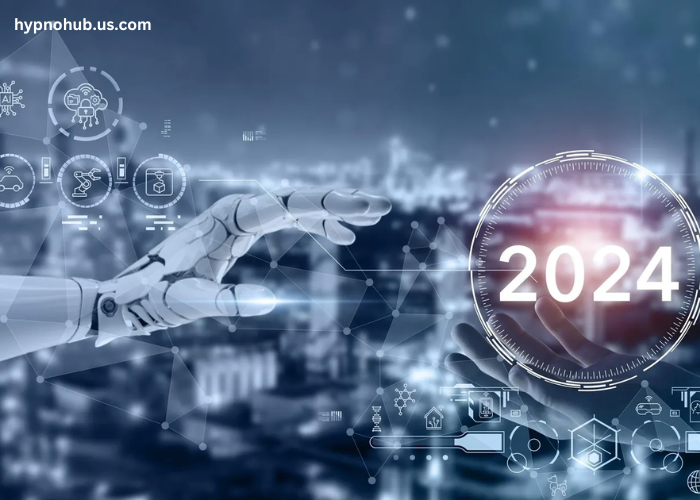The business world is undergoing rapid transformation driven by a multitude of technological, social, and economic forces. As we move deeper into the 21st century, global enterprises are navigating a landscape shaped by innovation, changing consumer behavior, and the ever-present demand for sustainability. The following are the key trends expected to shape global enterprises in the coming years.
1. Artificial Intelligence and Automation
Artificial Intelligence (AI) and automation are perhaps the most profound trends impacting global enterprises today. AI is increasingly embedded in business operations, from customer service (via chatbots) to predictive analytics and process automation. These technologies are not only streamlining operations but also enabling companies to make data-driven decisions with greater precision and speed.
Automation in manufacturing, logistics, and customer management is expected to further evolve, with machines performing more complex tasks previously carried out by humans. This will significantly improve efficiency and reduce operational costs. However, this shift also presents challenges such as job displacement, requiring companies to consider new roles and skill development for their workforces.
2. Sustainability and Corporate Social Responsibility (CSR)
Sustainability is no longer just a buzzword; it’s becoming a core aspect of how global enterprises operate. Climate change concerns, resource depletion, and increased regulatory pressure are pushing companies to adopt sustainable practices. Businesses are increasingly expected to go beyond compliance and integrate environmental, social, and governance (ESG) criteria into their strategy.
This trend encompasses everything from reducing carbon footprints to supporting ethical sourcing and fair labor practices. Consumer demand for greener products, as well as the growing availability of eco-friendly technologies, is driving businesses toward sustainability. Companies that fail to adapt may face reputational damage, regulatory penalties, or reduced market share as consumers and investors gravitate towards responsible organizations.
3. Remote Work and Hybrid Work Models
The COVID-19 pandemic catalyzed a shift to remote work that is expected to continue for the foreseeable future. Many enterprises are adopting hybrid models, where employees split their time between working remotely and in physical office spaces. This transformation is changing how companies manage their workforces, how offices are designed, and how employees engage with each other and with clients.
Remote work technology, such as collaboration tools, cloud-based software, and secure virtual environments, will continue to evolve, making remote work increasingly efficient. However, managing a distributed workforce also requires rethinking leadership styles, communication methods, and performance management, pushing companies to invest in human-centric technologies and practices.
4. The Rise of Digital Ecosystems
Global enterprises are increasingly moving toward digital ecosystems that extend beyond traditional organizational boundaries. Through strategic partnerships and collaborations, businesses are creating interconnected networks where data, services, and solutions flow seamlessly across industries and platforms.
These ecosystems enable companies to leverage external capabilities, access new markets, and share resources, all while creating value for customers in new and innovative ways. The integration of Internet of Things (IoT) devices, cloud platforms, and data-sharing initiatives makes it possible to develop ecosystems that offer tailored, personalized experiences for consumers.
5. Data-Driven Decision Making
The rise of big data and advanced analytics tools is empowering companies to make better, more informed decisions. By collecting vast amounts of customer, operational, and market data, businesses can gain valuable insights into customer preferences, market trends, and internal inefficiencies. Data-driven decision-making is allowing businesses to be more agile and responsive to market changes, thus gaining a competitive edge.
In the future, we can expect even more advanced tools, such as AI-powered analytics, to help companies harness the full potential of their data. Privacy concerns and data protection laws, such as GDPR, will continue to influence how companies collect and use personal data, pushing businesses to adopt stronger data governance frameworks.
6. The Expansion of E-Commerce and Digital Transformation
The ongoing growth of e-commerce is reshaping global retail and service industries. From supply chain innovations to the rise of digital-first brands, businesses are rapidly adopting digital strategies to enhance customer experiences, optimize inventory management, and improve supply chain efficiency. E-commerce has gone beyond traditional retail to include sectors like education, healthcare, and entertainment.
Furthermore, digital transformation is not limited to e-commerce alone. It spans all aspects of an enterprise, from marketing and sales to back-office operations. The integration of cloud computing, data analytics, and AI will continue to drive digital transformation, allowing businesses to engage customers more personally, improve operational efficiencies, and innovate faster than ever before.
7. Blockchain and Decentralized Technologies
Blockchain technology, most widely known for its association with cryptocurrency, is gaining traction in a variety of industries, including finance, logistics, healthcare, and more. The decentralized nature of blockchain enables secure, transparent transactions without the need for intermediaries. As businesses continue to explore blockchain’s potential, it’s becoming a key tool for improving supply chain transparency, securing data, and enhancing trust between enterprises and their customers.
In the financial services sector, blockchain-based solutions like smart contracts and decentralized finance (DeFi) are transforming how businesses engage in transactions. As regulatory clarity improves and technology advances, blockchain’s adoption will likely become more widespread across industries.
8. 5G and the Future of Connectivity
The rollout of 5G networks is set to revolutionize the way enterprises operate, offering faster, more reliable internet connections with ultra-low latency. This enhanced connectivity will empower a wide range of new technologies, including IoT, augmented reality (AR), and virtual reality (VR), that require high-speed internet to function effectively.
Enterprises will be able to leverage 5G to enhance their operations, enabling real-time data exchange, automation, and remote monitoring of operations in ways that were previously not possible. This connectivity will be especially important for industries like autonomous vehicles, smart cities, and industrial IoT applications, where instantaneous communication is crucial.
9. Diversity, Equity, and Inclusion (DEI)
The importance of diversity, equity, and inclusion (DEI) continues to grow in global enterprises. Companies that prioritize DEI initiatives are not only fostering more equitable work environments but also gaining access to a wider pool of talent and better reflecting the diverse consumer base they serve. Moreover, studies show that diverse teams lead to more innovation and better business outcomes.
In the coming years, enterprises will be expected to take more meaningful actions toward DEI, ensuring that their hiring practices, company cultures, and leadership structures reflect a commitment to inclusivity. As part of this shift, companies will need to support the professional growth of underrepresented groups and create environments where all employees feel valued and respected.
10. Globalization and Local Adaptation
Despite growing concerns around deglobalization, global enterprises are still looking to expand into new markets, especially in emerging economies. However, to succeed, businesses will need to adopt a more localized approach, tailoring products, services, and marketing strategies to the unique needs and preferences of each market.
Global supply chains and operations must adapt to changing geopolitical dynamics, regulatory environments, and market demands. Businesses will continue to balance the desire for global reach with the need for local relevance, ensuring that their operations are agile and responsive to global shifts.
Conclusion
The future of global enterprises will be defined by an ongoing digital revolution, a heightened focus on sustainability, and a shift towards more inclusive and agile business models. Companies that are proactive in embracing these trends will be better positioned to succeed in an increasingly complex and competitive world. However, this transformation will require businesses to innovate, adapt to new technologies, and remain committed to addressing the changing needs of consumers and stakeholders worldwide. By doing so, enterprises can thrive in the rapidly evolving global landscape.





